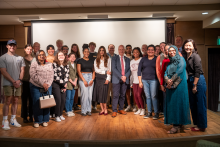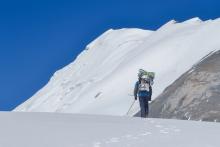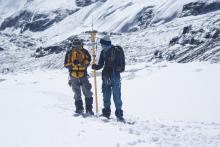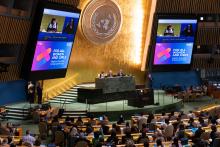Girls Must Drive the Next Chapter of Digital Change
As we mark International Girls in ICT Day, let’s make sure that every young woman and girl has the chance to be meaningfully connected with ample opportunities to become digital transformation leaders.
The Power of Voice to Inspire Change
Stories and narratives matter, which is why they have been an important part of the communications strategy at the United Nations.
Leveling the Playing Field: Inspiring Change through Sport
Sport diplomacy moves beyond the competitive element of sport to leverage sport’s spirit of collaboration and shared commitments.
Reflections on the Tenth Anniversary of the Ark of Return
Visitors are meant to pass through the Ark of Return—the Permanent Memorial in Honour of the Victims of Slavery and the Transatlantic Slave Trade—to intimately experience three primary elements addressing the past, present and future.
Forests and Foods: Nourishing People, Sustaining the Planet
The future of forests and food security affects the well-being of every individual on this planet; integrated and concerted efforts to protect forests are, therefore, crucial.
The Urgent Need to Preserve Glaciers in a Warming World
Climate change and other drivers have accelerated glacier melt, threatening water security, biodiversity and regional economies.
The Beijing Platform for Action at 30: Marking Progress and Addressing Challenges in Pursuit of Gender Equality and Women’s Empowerment
The status of women has improved significantly since the first Beijing conference in 1995, yet there is still much work to be done to achieve true equality.
Who Is Protecting Antarctica’s Environment?
The Antarctic Treaty System, in place since 1961, is principally dedicated to the environmental threats that arise locally, including those from fishing, tourism and scientific research.
Sustainable Stories: Empowering Children to Shape Their Own Future
It's crucial to show young children the possibilities available to them in a positive way, but it’s equally important to ensure that their environment can fully support them.
The Crisis of Global Displacement in a Time of Insecurity
There is a difference between choosing to move and being forced to flee. That difference is essential in learning how to deal with the current wave of global insecurity.





























